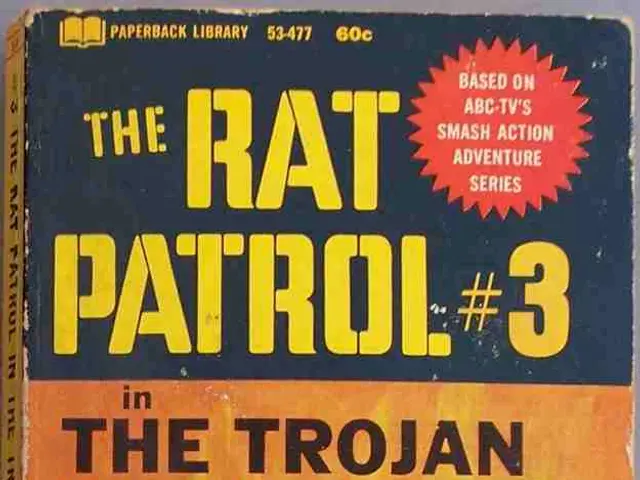Crime Novels' Grim Liaison: The Persistent Connection Between Erotic Labor and Crime-Ridden Literature
In the realm of crime fiction, characters from different authors often find themselves navigating the complex and intricate world of sex work. This relationship is not accidental, as sex work inherently involves intense human drama—lust, love, jealousy, greed, shame, rage, and fear—that provides rich material for plotlines involving crime, motive, and conflict.
One such character is Matthew Scudder, created by Lawrence Block. An ex-cop and ex-alcoholic, Scudder finds love with a high-class escort who opens an antique shop on the Upper East Side. Meanwhile, David Gordon's work, particularly his book "Behind Sunset," set in the porn world of LA, explores this relationship between crime fiction and sex work. Gordon, who has worked for adult publications like Hustler, Chic, and Barely Legal, uses the world of porn as a lens to delve into the mechanisms driving society's culture.
Gordon suggests that the sex industry is a reflection of the broader society, with its own set of victims, operators, and predators. The sex industry, as described by Gordon, is a vast, central aspect of society, where desire is processed into money. The intimacy of the places where sex workers and crime dwellers rub up against each other contributes to their prevalence in crime fiction.
In noir and hardboiled detective genres, which are often urban, modern, dark, and emotionally complex, the interaction between sex workers and detectives is a recurring element. Sex work is not just about sex but about survival, control, and power dynamics, which can be realistically portrayed as another type of work. This adds realism and emotional depth to crime fiction, highlighting systemic issues like police neglect and societal stigma.
The themes around sex work in crime fiction often serve to explore broader social issues and psychological complexity, such as toxic relationships and power imbalances. For instance, Michael Connelly's character Harry Bosch, a Hollywood detective, is driven to seek justice for his mother, a slain prostitute. Similarly, Manuel Vázquez Montalbán's character Pepe Carvalho, a leftist gourmand and PI, is roused to action by his girlfriend, a prostitute, when her fellow workers from the Barrio Chino are wrongly blamed for a murder.
Sex workers keep many unmentionable secrets, such as adultery, fetishism, and queerness in the age of the closet. These secrets often fuel blackmail schemes, erotic obsessions, doomed love triangles, and even serial killers, as portrayed by David Gordon in his work. The sex industry, as a result, is a world where human drama is generated, producing plot lines that captivate audiences and add depth to crime narratives.
In conclusion, the relationship between crime fiction and sex work is a fascinating one. The intense human drama inherent in sex work provides a compelling backdrop for suspense, mystery, and character-driven stories in various genres and settings. As we delve deeper into these narratives, we not only entertain but also shed light on the systemic issues and societal stigmas that surround sex work.
- The worlds of crime fiction and sex work intertwine intricately, as seen in the works of authors like Lawrence Block and David Gordon, where characters often navigate the complexities of the sex industry.
- In crime fiction, sex work is not merely a profession, but a complex and multi-layered area that encompasses themes of survival, power dynamics, and societal stigma.
- Crime narratives often exploit the darker elements of the sex industry, such as blackmail schemes, erotic obsessions, and serial killers, to add depth and suspense to their stories.
- By exploring the relationship between crime fiction and sex work, we not only delve into the human drama and emotional complexity of these genres but also unveil broader societal issues and systemic problems related to the sex industry.







